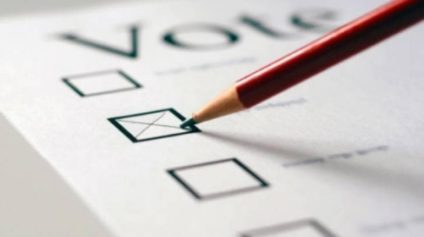When a person leaves jail/prison, it is often said that he or she has “paid their debt to society.” But for many ex-offenders, the debt grows even after prison ends. In addition to jail or prison time, many defendants are sentenced to pay fines, costs, fees, or restitution. These financial penalties are legal financial obligations (LFOs). Like any other part of a sentence, the failure to satisfy one’s LFOs has consequences. When these fees are not paid, the freed offenders lose many rights — including the right to vote. Due to the racial imbalances in the criminal justice system, most of these offenders who lose their rights are African-American.
When someone is convicted of a crime a judge can impose monetary sanctions in addition to jail time. Some courts require the convicted party to pay restitution to the victim or to the state’s victim relief fund. Some courts require repayment of court costs. If a defendant is sentenced to probation, the court may shift some of the supervision costs to the probationer. The amounts of these LFOs are sometimes far from trivial. An American Bar Association article notes that some crimes carry fines of up to $500,000.
According to Dr. Alexes Harris, professor of sociology at the University of Washington and author of “A Pound of Flesh: Monetary Sanctions as Punishment for the Poor,” it is difficult to assess LFOs on a national level because many jurisdictions are involved. Nevertheless, some figures are available. In Washington state, for example, for each conviction a defendant can expect to incur an average of $1,300 in costs and fees.
Notably, LFOs are not limited to serious crimes. One of Dr. Harris’ reports explains that technically, a traffic ticket is an LFO. LFOs are imposed for crimes ranging from the most severe felonies to the most minor of misdemeanors. Dr. Harris further explained that LFOs know no age limit, as LFOs have been imposed for juvenile infractions.
To fully understand how LFOs impact a person’s ability to vote, one must understand the history of felon disenfranchisement.
Until the Civil War, most states restricted the vote to white males. In 1870, the Fifteenth Amendment prohibited states from using race or color as voting qualifications. For a brief period during the Reconstruction era, African-Americans in the South voted and elected the first African-American representatives to Congress. The progress, however, was short-lived. Confederate loyalists, still stung by their loss in the war, were not willing to share power with African-Americans. This racial resentment led states to pass laws that made voting more difficult for African-Americans, including felon disenfranchisement laws.
Although felon disenfranchisement was not invented during Reconstruction, prior to the Civil War laws that disenfranchised felons were limited in scope. After enslaved Africans were freed and gained the right to vote, Southern states enacted broader laws that stripped the right to vote for anyone convicted of a felony. Unsurprisingly, the rate of felony convictions for African-Americans skyrocketed at the exact time these broader laws were passed. Some of the new disenfranchisement laws imposed financial penalties.
Currently, in most states, the failure to satisfy LFOs arising from a felony conviction can result in a loss of voting rights. Moreover, in at least eight states, a person can be prohibited from voting for failure to satisfy misdemeanor obligations.
The loss of the vote may not be automatic. Although practices vary by jurisdiction, Dr. Harris explained that in Washington, the practice works as follows: if a person misses three LFO payments in a 12-month period the local clerk of court or the victim of the crime can notify the prosecutor. The prosecutor can then petition the court to revoke the individual’s right to vote.
A report by the People’s Action Institute, “Disenfranchised by Debt,” explains the scope of the disenfranchisement issue. According to the report, 30 states have laws that restrict a person’s right to vote until all LFOs have been satisfied. Of the 30, nine have laws that explicitly state that a person’s voting rights will be revoked if LFOs are unpaid. Another 21 states disenfranchise voters in less direct, or de facto, manner. In these states, the laws do not directly state that unpaid LFOs will result in the termination of voting rights. Rather, the laws simply require that prison or probation be completed prior to the restoration of voting rights. However, in these states, probation is not complete until all LFOs have been repaid. Thus, these states have engaged in de facto disenfranchisement.
Paying LFOs can be difficult for many reasons. First, LFOs create a vicious cycle of debt. Even when the amount assessed is minimal, those impacted may still find it difficult to pay the fees. A criminal record makes it difficult to find work. Without steady employment, the former offender’s ability to pay the fees all but disappears. Even worse, as noted, most jurisdictions charge interest on unpaid balances. Faced with limited employment prospects and an ever-increasing debt, many find paying LFOs to be a seemingly insurmountable task.
Second, LFOs create personal stress. Dr. Harris explained that those laboring under LFO debt experience high levels of anxiety. They stress about returning to jail or losing their driver’s licenses as LFOs go unpaid. The debtor worries about choosing between buying essentials for their families (groceries, prescriptions, utilities, and the like) and paying their court-ordered debts. As the stress mounts, so does the interest on the debt. Stress affects one’s ability to find and keep a job, continuing the cycle of debt.
Finally, Dr. Harris explained that many persons responsible for paying LFOs do not know how their voting rights will be affected by their failure to pay. She noted that in Washington a person with LFO obligations can vote as long as his LFO account is in good standing. However, during her research she observed that many individuals did not know that they could vote while they continued to pay the LFO.
States know that repayment can be difficult. Therefore, in accordance with Supreme Court precedent, most states have laws that allow a person to argue that she is unable to pay the LFO. Despite this ruling, the Criminal Justice Policy Program at Harvard Law School reports that many states still have laws that, on their face, allow defendants to be jailed without any inquiry into their ability to pay. A report from the Brennan Center for Justice confirmed that these laws are often abused. The report stated, “Despite these constitutional protections … interviews with defenders and court personnel revealed that some jurisdictions ignore the requirement that courts inquire into ability to pay before utilizing debtors’ prison, while many others skirt the edges of the law by failing to evaluate a defendant’s ability to pay until after he or she has been arrested, or even jailed, for criminal justice debt, or by allowing defendants to “volunteer” to be incarcerated.”
Dr. Harris’ research shows that the LFO system has roots in racist practices. She writes: “Charged with fees and fines several times their annual earnings, many southern prisoners [after Reconstruction] were leased by justice officials to corporations who paid their fees in exchange for inmates’ labor in coal and steel mines and on railroads, quarries, and farm plantations. Collected fees and fines were used to pay judges’ and sheriffs’ salaries. Monetary sanctions were thus integral to systems of criminal justice, debt bondage, and racial domination in the American South for decades.”
The racial impact of current LFOs is difficult to assess because, again, data must be collected across many jurisdictions. However, using various methods, we can estimate that African Americans are more likely to be adversely impacted by LFOs. First, the racial disparities in the criminal justice system put a higher proportion of African-Americans at risk for financial sanctions. As the ACLU notes, “The imposition of LFOs … [disproportionately] affects racial and ethnic minorities, because they are [disproportionately] represented among the prisoner population. In 2007, 38% of the nation’s 1.5 million prison inmates were black and 21% were Hispanic, despite the fact that these groups only represent 12% and 15% of the general population, respectively.” Disproportionate representation means that LFOs have a disproportionate impact on the Black community.
Second, the geography of LFOs makes African-Americans particularly susceptible to them. According to the 2010 Census, the 10 states with the highest African-American populations were California, Florida, Georgia, Illinois, Louisiana, Maryland, New York, North Carolina, Texas, and Virginia. Of these ten, six have laws that directly or indirectly disenfranchise residents for failure to pay LFOs. Similarly, most of the states with laws that directly provide for revocation of voting rights for failure to pay an LFO are in the South. Census data show that 55 percent of African-Americans live in Southern states.
Finally, though each jurisdiction is different when LFOs are studied on the state and local level, race is usually a factor. For instance, a recent study found that in Alabama, Black voters were more likely whites to have unpaid LFOs and more likely to be stripped of their voting rights based on the failure to pay. While 30 percent of white Alabamans with LFOs were denied voting rights, for African-Americans the number was 56 percent.
When it comes to LFOs, the old adage “let the punishment fit the crime” is appropriate. Although most would agree that it is fair for society to punish those who break its laws, the same people would also agree that the punishment should end at some point. Those struggling to pay LFOs are punished unceasingly until their obligations are paid off. Efforts to reform laws to restrict or eliminate LFOs are underway. The African-American community will benefit from the repeal of these laws because LFOs impose a cost on the community that it can no longer afford.

